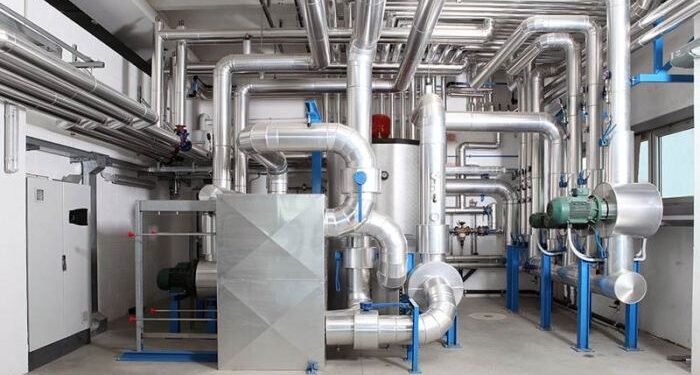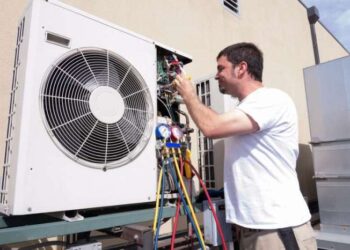Exploring the realm of industrial HVAC maintenance unveils a crucial aspect of ensuring smooth operations and cost-effectiveness. Let's delve into the essential practices and benefits that come with maintaining these systems in top-notch condition.
As we navigate through the details, you'll discover the critical tasks, frequency of checks, advantages of preventative maintenance, the importance of professional technicians, and the impact of technology on industrial HVAC systems.
Importance of Industrial HVAC Maintenance
Regular maintenance of industrial HVAC systems is crucial to ensure optimal performance and longevity. Neglecting maintenance in industrial settings can lead to a range of issues, including decreased efficiency, higher energy consumption, and costly repairs. By implementing proper maintenance practices, industrial facilities can improve energy efficiency, reduce operational costs, and extend the lifespan of their HVAC systems.
Improved Energy Efficiency
Proper maintenance of industrial HVAC systems involves regular cleaning, inspection, and tuning of components. This helps to ensure that the system operates at peak efficiency, reducing energy wastage and lowering utility bills. By replacing worn-out parts, cleaning filters, and optimizing system settings, industrial facilities can significantly improve their energy efficiency and reduce their carbon footprint.
Cost Savings
Neglecting maintenance can lead to more frequent breakdowns, emergency repairs, and premature system failure. These unexpected expenses can quickly add up and strain the facility's budget. On the other hand, investing in routine maintenance can help prevent costly repairs, extend the lifespan of HVAC equipment, and reduce downtime.
By proactively addressing issues and keeping systems running smoothly, industrial facilities can save money in the long run.
Compliance and Safety
Regular maintenance of industrial HVAC systems is essential to ensure compliance with industry regulations and safety standards. Proper maintenance helps to prevent issues such as poor indoor air quality, equipment malfunctions, and fire hazards. By staying on top of maintenance tasks and inspections, industrial facilities can create a safe and healthy environment for employees and comply with relevant regulations.
Common Industrial HVAC Maintenance Tasks
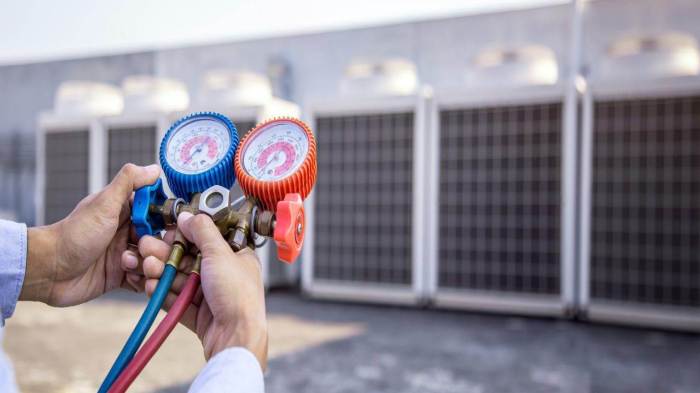
Regular maintenance of industrial HVAC systems is crucial to ensure optimal performance and energy efficiency. By performing essential maintenance tasks, you can prolong the lifespan of the equipment and prevent costly breakdowns. Let's explore the key maintenance tasks that are necessary for industrial HVAC systems.
Cleaning Filters, Coils, and Ducts
Maintaining clean filters, coils, and ducts is essential in industrial settings to ensure proper airflow and prevent the buildup of contaminants. Dirty filters can restrict airflow, causing the system to work harder and consume more energy. Additionally, dirty coils can reduce the system's cooling efficiency and lead to higher energy consumption.
Regular cleaning of filters, coils, and ducts is crucial to maintain indoor air quality and prevent potential health hazards.
- Filters should be checked and replaced regularly to ensure proper airflow and prevent the circulation of dirt and contaminants.
- Coils should be cleaned to remove dirt and debris that can hinder the heat transfer process and reduce the system's efficiency.
- Ducts should be inspected and cleaned to prevent the accumulation of dust, mold, and other pollutants that can affect air quality and system performance.
Checking Refrigerant Levels and Ensuring Proper Airflow
Proper refrigerant levels are essential for the efficient operation of industrial HVAC systems. Low refrigerant levels can lead to decreased cooling capacity and increased energy consumption. Regular checks and adjustments of refrigerant levels can help maintain optimal system performance and prevent compressor damage.
Ensuring proper airflow is also critical to prevent overheating and system malfunctions.
- Regularly check refrigerant levels and top up if necessary to maintain peak system efficiency.
- Inspect ductwork and vents to ensure proper airflow and distribution of conditioned air throughout the industrial facility.
- Monitor system performance and address any issues promptly to prevent costly repairs and downtime.
Frequency of Maintenance Checks
Regular maintenance checks are essential for keeping industrial HVAC systems running efficiently and effectively. The frequency of these checks can vary depending on the specific components of the system and external factors such as seasonal changes.
Recommended Maintenance Schedule
- Filters: It is recommended to check and replace filters every 1 to 3 months, depending on the type of filter and the level of contaminants present in the environment.
- Coils: Coils should be inspected and cleaned at least once a year to ensure proper heat transfer and prevent issues such as freezing.
- Belts and pulleys: These components should be checked every 6 months to a year for wear and tear, and replaced as needed to prevent breakdowns.
- Refrigerant levels: Refrigerant levels should be checked annually to prevent system inefficiency and potential damage to the compressor.
Impact of Seasonal Changes
Seasonal changes can have a significant impact on the frequency of maintenance checks for industrial HVAC systems. For example, during the summer months when the system is working harder to cool the space, it may be necessary to increase the frequency of filter changes to ensure proper airflow and efficiency.
In the winter, when the system is primarily heating, checking the combustion chamber and ignition system becomes more critical to prevent breakdowns and ensure safety. By adjusting the maintenance schedule based on seasonal changes, you can keep your industrial HVAC system running smoothly year-round.
Benefits of Preventative Maintenance
Implementing a preventative maintenance program for industrial HVAC systems offers numerous advantages. By proactively addressing potential issues, businesses can save time, money, and resources in the long run. Preventative maintenance helps ensure the smooth operation of HVAC equipment, leading to increased efficiency and productivity.
Extended Lifespan of HVAC Equipment
Regular preventative maintenance can significantly extend the lifespan of industrial HVAC equipment. By conducting routine inspections, cleaning, and servicing, components are kept in optimal condition, reducing wear and tear. This proactive approach helps prevent major breakdowns and costly repairs, ultimately prolonging the life of the HVAC system.
Early Identification of Potential Issues
One of the key benefits of preventative maintenance is the ability to identify potential issues before they escalate into major problems. Through regular inspections and tune-ups, HVAC technicians can spot warning signs such as worn-out parts, leaks, or inefficiencies. By addressing these issues promptly, businesses can prevent unexpected breakdowns and maintain a comfortable indoor environment for employees and customers.
Importance of Hiring Professional HVAC Technicians
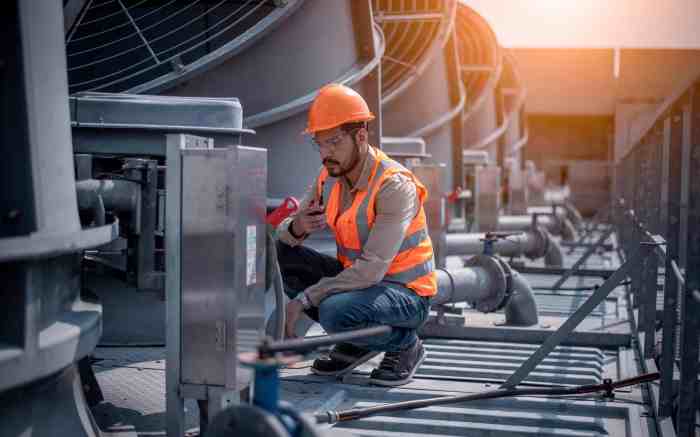
When it comes to industrial HVAC maintenance, hiring professional technicians is crucial to ensure the optimal functioning of your system. These experts have the specialized skills and knowledge required to service complex industrial HVAC systems efficiently and effectively.
Specialized Skills and Knowledge
- Professional HVAC technicians are trained to handle a wide range of industrial HVAC systems, from large-scale cooling towers to intricate ventilation systems.
- They possess in-depth knowledge of HVAC components, electrical systems, refrigerants, and mechanical processes involved in industrial HVAC units.
- These technicians are equipped to troubleshoot complex issues and perform repairs or replacements with precision, minimizing downtime and maximizing system performance.
Benefits of Partnering with Experienced Professionals
- Professional HVAC technicians follow industry best practices and safety guidelines to ensure the longevity and efficiency of your industrial HVAC system.
- By engaging experienced professionals, you can benefit from proactive maintenance strategies that help prevent costly breakdowns and extend the lifespan of your equipment.
- Professional technicians can provide valuable insights and recommendations for optimizing your industrial HVAC system's performance, energy efficiency, and overall functionality.
Impact of Technology on Industrial HVAC Maintenance
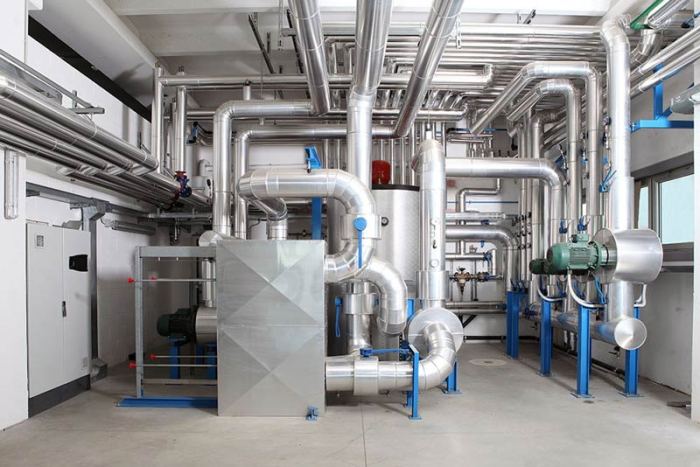
With technological advancements, the maintenance of industrial HVAC systems has been greatly influenced, leading to more efficient and effective processes.
Modern Tools and Techniques for Maintenance
Technicians now utilize advanced tools and techniques to ensure the optimal functioning of industrial HVAC systems. These include:
- Remote monitoring systems that allow real-time tracking and analysis of system performance.
- Diagnostic sensors and software for predictive maintenance, identifying potential issues before they escalate.
- Energy management systems to optimize energy usage and reduce operational costs.
Smart HVAC Systems for Streamlined Maintenance
Smart HVAC systems integrate technology to streamline maintenance processes, offering benefits such as:
- Automated scheduling of maintenance tasks based on system performance data.
- Self-diagnostic capabilities that alert technicians to specific problems for quick resolution.
- Integration with building automation systems for centralized control and monitoring.
Ultimate Conclusion
Wrapping up our discussion on industrial HVAC maintenance, it's evident that a well-maintained system not only enhances efficiency but also prolongs the lifespan of equipment. By prioritizing regular maintenance and seeking expert help when needed, industrial facilities can operate smoothly and cost-effectively.
General Inquiries
How often should industrial HVAC systems undergo maintenance?
Industrial HVAC systems should ideally undergo maintenance checks at least twice a year to ensure optimal performance.
Why is it crucial to clean filters, coils, and ducts in industrial settings?
Cleaning these components is vital to prevent blockages and ensure proper airflow, which is essential for efficient operation.
What are the benefits of hiring professional HVAC technicians for industrial maintenance?
Professional technicians possess the specialized skills and knowledge required to handle complex industrial HVAC systems effectively, ensuring thorough maintenance and problem identification.
How do seasonal changes impact the frequency of maintenance checks?
Seasonal changes can affect the workload on HVAC systems, necessitating more frequent checks during peak seasons to address any potential issues promptly.

